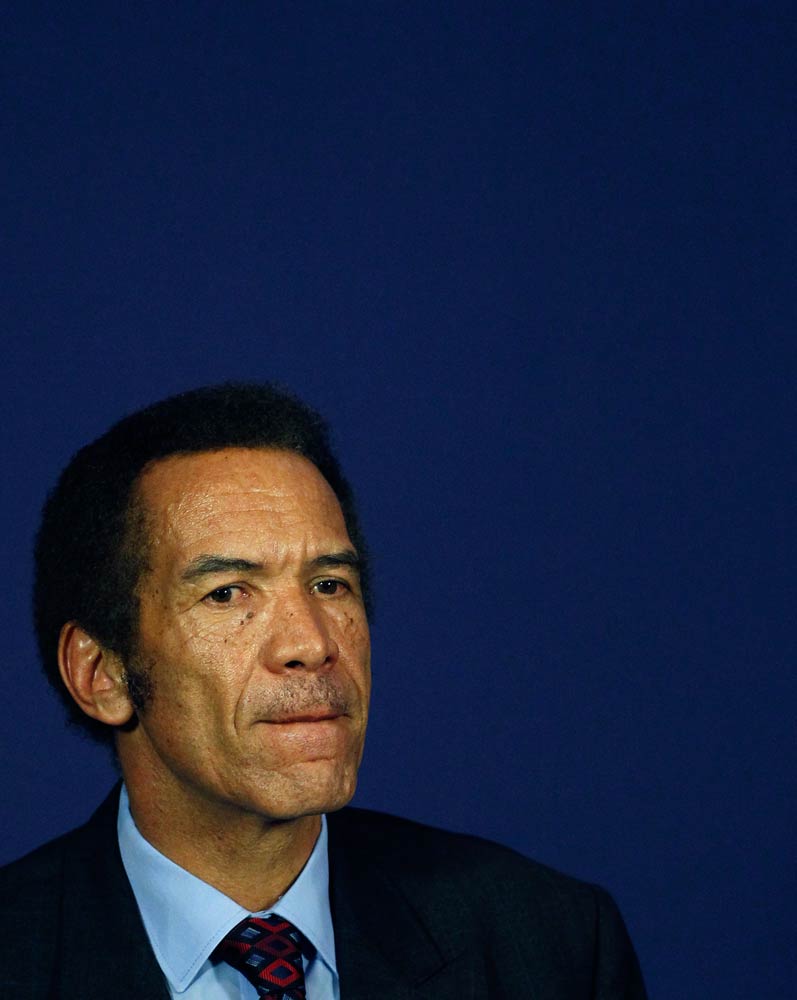
When the news media turns a penetrating gaze on Africa, Botswana rarely makes headlines. The southern African nation is best known for diamonds, heart-stopping natural beauty and inoffensive politics. It ranks second behind Mauritius in the latest Ibrahim Index of African Governance.
But there is trouble in paradise. So far this month an editor has been arrested and a reporter has fled, triggering a diplomatic spat with the US, while a South African politician has been barred from entering the country and there are concerns over its use of the death penalty.
The unpleasant side of Botswana came to light when President Ian Khama, who once appeared on Top Gear with Jeremy Clarkson and co, was reported to have been involved in a late night car crash which resulted in the other driver being given a new jeep.
The editor who published the story, Outsa Mokone of the Sunday Standard, was arrested and charged with sedition. “I would rather spend 100 years in their prisons rather than be a prisoner of guilty conscience,” he said upon his release.
Police raided the offices of Sunday Standard and seized documents and computer equipment. Mokone’s colleague, journalist Edgar Tsimane, fled to neighbouring South Africa where he applied for asylum. In an interview with that country’s eNews Channel Africa (eNCA), he painted a highly unflattering picture of a country that many revere as a beacon of democratic progress for the continent.
“There was information from my sources that my life was in danger,” said Tsimane, explaining his decision to leave Botswana, which he went on to describe as increasingly repressive.
“I think it’s been a gradual process. It’s now becoming more and more visible. I can tell you that we’ve been experiencing extra-judicial killings in the country. The public is losing confidence in the government of the day.”
He cited the case of a petty criminal shot dead by military intelligence, who riddled his body with 10 bullets. “How can you kill a man without subjecting him to the court of the law?”
Former army general Khama’s Botswana Democratic Party has ruled for nearly half a century. Tsimane added: “The president is just too powerful. He’s using all the powers in the constitution to govern himself. Even if he can do any wrong, because he knows he cannot be prosecuted.”
The media crackdown caused shock and disappointment. Sue Valentine, Africa programme co-ordinator at the Committee to Protect Journalists, said: “These events tarnish Botswana’s reputation for good governance and media freedom in southern Africa. It can be restored by allowing a free flow of news and opinion.”
America joined the condemnation. The state department said Mokone’s arrest is “inconsistent with… fundamental freedoms and at odds with Botswana’s strong tradition of democratic governance”.
That provoked a backlash from Botswana’s government spokesperson Jeff Ramsay, who said he noted the US reaction with “dismay” and suggested the American government “might wish to put its own house in order before rushing to hastily comment on the judicial affairs of others”.
Ramsay added: “We find it unfortunate… that a foreign government, much less one that professes to be a friend and partner of Botswana, should issue such a statement about an ongoing judicial process in our country.”
Meanwhile firebrand politician Julius Malema, from South Africa, was denied a visa to visit Botswana because of apparent security concerns. Malema has previously called for the overthrow of the government, claiming that Khama is a western stooge.
Malema’s Economic Freedom Fighters party reacted angrily, condemning Botswana’s “autocratic military government”. It said: “There are absolutely no grounds for a so-called democratic country to refuse a person a visa merely on the basis that he holds a different political view to that of the government.”
Edwin Samotse, however, did make the journey from South Africa to Botswana, his home country, where he is to stand trial for murder. Human rights lawyers says they are worried that South Africa ignored its own constitutional court by deporting Samotse without receiving an assurance he will not face the death penalty.
The next Ibrahim Index of African Governance will be released in London on 29 September. Tsimane, Malema and others will be curious to see if Botswana can maintain its lofty position.
David Smith for the Guardian Africa Network
